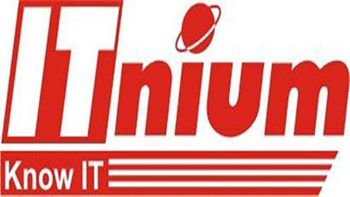Oracle Database 11g: Program with PL/SQL 1Z0-144
|
|
|
PL/SQL is Oracle Corporation's procedural extension for SQL and the Oracle relational database. PL/SQL is available in Oracle Database, Times Ten in-memory database, and IBM DB 2. Oracle Corporation usually extends PL/SQL functionality with each successive release of the Oracle Database. |
|
Course Content
Oracle Database 11g: PL/SQL Fundamentals
Introduction to PL/SQL
Explain the need for PL/SQL
Explain the benefits of PL/SQL
Identify the different types of PL/SQL blocks
Output messages in PL/SQL
Declaring PL/SQL Variables
Recognize valid and invalid identifiers
List the uses of variables, declare and initialize variables, use bind variables
List and describe various data types using the %TYPE attribute
Writing Executable Statements
Identify lexical units in a PL/SQL block
Use built-in SQL functions in PL/SQL and sequences in PL/SQL expressions
Describe when implicit conversions take place and when explicit conversions have to be dealt with
Write nested blocks and qualify variables with labels
Write readable code with appropriate indentation
Interacting with the Oracle Database Server
Create PL/SQL executable blocks using DML and transaction control statements
Make use of the INTO clause to hold the values returned by a SQL statement
Writing Control Structures
Identify the uses and types of control structures (IF, CASE statements and expressions)
Construct and identify loop statements
Apply guidelines when using conditional control structures
Working with Composite Data Types
Create user-defined PL/SQL records
Create a record with the %ROWTYPE attribute
Create an INDEX BY table and INDEX BY table of records
Describe the difference0s among records, tables, and tables of records
Using Explicit Cursors
Distinguish between usage of implicit and explicit cursors, use SQL cursor attributes
Declare and control explicit cursors, use simple loops and cursor FOR loops to fetch data
Declare and use cursors with parameters
Lock rows with the FOR UPDATE clause and reference the current row with the WHERE CURRENT OF clause
Handling Exceptions
Define PL/SQL exceptions
Recognize unhandled exceptions
Handle different types of exceptions (pre-defined exceptions, non-predefined exceptions and user-defined exceptions)
Propagate exceptions in nested blocks and call applications
Creating Stored Procedures and Functions
Differentiate between anonymous blocks and subprograms
Create a simple procedure and invoke it from an anonymous block
Create a simple function
Create a simple function that accepts a parameter
Differentiate between procedures and functions
Oracle Database 11g: Develop PL/SQL Program Units
Creating Procedures
Differentiate between anonymous blocks and subprograms, use a modularized and layered subprogram design, and identify the benefits of subprograms
Create a simple procedure and invoke it from an anonymous block
Work with procedures
Handle exceptions in procedures, remove a procedure, and display a procedure's information
Creating Functions
Differentiate between a procedure and a function
Describe the uses of functions
Work with functions (create, invoke and remove functions)
Creating Packages
Identify the benefits and the components of packages
Work with packages (create package specification and body, invoke package subprograms,remove a package and display package information)
Working with Packages
Overload package subprograms, use forward declarations
Create an initialization block in a package body
Manage persistent package data states for the life of a session and use PL/SQL tables and records in packages
Using Oracle-Supplied Packages in Application Development
Describe how the DBMS_OUTPUT package works
Use UTL_FILE to direct output to operating system files
Describe the main features of UTL_MAIL
Using Dynamic SQL
Describe the execution flow of SQL statements
Use Native Dynamic SQL (NDS)
Use the DBMS_SQL package
Design Considerations for PL/SQL Code
Create standard constants and exceptions
Write and call local subprograms
Control the run-time privileges of a subprogram
Perform autonomous transactions
Use NOCOPY hint, PARALLEL ENABLE hint and DETERMINISTIC clause
Use bulk binding and the RETURNING clause with DML
Creating Triggers
Describe different types of triggers and their uses
Create database triggers
Manage triggers
Creating Compound, DDL, and Event Database Triggers
Create triggers on DDL statements
Create triggers on system events
Using the PL/SQL Compiler
Describe the new PL/SQL compiler and features
Use the new PL/SQL compiler initialization parameters
Use the new PL/SQL compile time warnings
Managing PL/SQL Code
Describe and use conditional compilation
Hide PL/SQL source code using dynamic obfuscation and the Wrap utility
Managing Dependencies
Track and manage procedural dependencies
|
Software Courses
Itnium PL/sql programming training institute Sangli Vishrambag Maharastra
ITnium is one of the best and reputed classes for PL/SQL courses in sangli. PL/SQL training courses in sangli Miraj.
ITnium is the best training institute for C & C++ Programming,Data Structure, Java Programming ,.Net ,MVC ,Javascript, Oracle, SQL, Python, PHP Programming, SQL Programming, PL/SQL Programming, Software Testing, Android, Web development, Full stack developer, Database
Oracle Database
Oracle Database 12c: Developer Certification (OCA / OCP Developer)
This course provides an exhaustive coverage of SQL, PL/SQL & Advanced PL/SQL.
